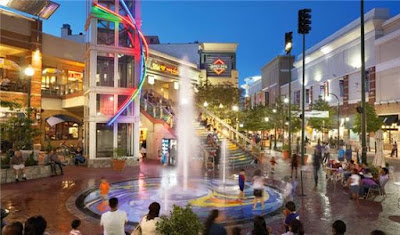A Contemporary
Art Museum in Philadelphia
The Fabric
Workshop and Museum, founded in 1977, is recognized as an
internationally acclaimed contemporary art museum and is the only institution
in the Unites States devoted to creating work in new materials and media in
collaboration with artists at all stages of their careers, working with studio
staff, educators, and apprentices.
The
Collections document FWM’s unique history of artistic
activity with contemporary artists. They also include important documentation
and process materials relating to the creative development of projects by
Artists-in-Residence. Collections fall into three categories:
Commissioned Works of Art created in the
Artist-in-Residence Program large-scale installations and
sculptures, drawings and paintings, hand screen-printed fabric garments and
textiles;
Artist Boxes assembled at the
completion of each artist's residence that include samples, prototypes, swatches,
and other materials related to the creative process;
Photography and Video Archives
documentation of the creative process of artist's residencies, artist and
curator lectures, exhibitions, special fabrication techniques, and educational
activities.
The
Artist-in-Residence Program a
collaborative process, a permanent collection of some 6,000 works of art and an
archive of diverse materials that preserves and documents the course of
artistic production from inspiration to realization. FWM hosts
emerging and established local and international contemporary artists who have
a demonstrated commitment to innovation and exploration. Artists-in-residence
are drawn from all disciplines, including painting, sculpture, architecture and
design, conceptual and installation art, performance, and video. Working
collaboratively with FWM's staff of printers and technicians, artists are
introduced to new techniques, materials, and resources, and are thus able to
realize projects that would not otherwise be possible. Through this
collaborative creative process, artists stretch the boundaries not only of their
own work, and of the creative possibility of the various media, but also of the
larger development of contemporary art.
Education &
Apprenticeships Programs
High School one of the original programs of The
Fabric Workshop and Museum, the High School Apprentice Training Program offers
students the opportunity to learn all aspects of hand screen-printing on
fabric. Students design and print their own fabric yardage and assist staff in
the production of artist residency projects. Hand screen-printing is an art
form as well as an industrial skill, and the program is designed to provide
students with new tools for artistic expression and self-empowerment. The
program was created to provide excellent art education for teenagers from
diverse economic and cultural backgrounds; the objective is to complement
school resources and improve art education for high school age students in the
Philadelphia region.
College and
Post-Graduate a holistic
experience enabling artists to develop skills in silkscreen printing and
working with fabric to enhance their studio practice. Apprentices
participate in the daily operations of the FWM studio and museum and learn how
to create a design by hand on mylar, mix colors with fabric pigment, use screen
printing techniques, register multiple screens, and print their own one-color
and three-color repeat yardages. The program focuses on enabling artists
to develop skills in screen printing and integrating fabric into their art
making.
Family Programs designed to explore and learn about
contemporary art in new and exciting ways. Using FWM's exhibitions and unique
studio environment as a foundation for learning, this program features hands-on
activities designed to spark interest, arouse curiosity, and encourage children
and adults to learn about art and culture together. Workshops allow families
time and space to share in the creative process and expression inside and
outside the Museum walls.
Study Tours Workshops and
Custom Programs lead participants through our current exhibitions and professional
studios and are available to middle school, high school, college and adult
groups. Custom programs include one or two-session collaborative design and
print repeat yardage workshops or special presentations of past artist-in-residence
projects.
Museum
features include an ambitious exhibitions program, a museum shop filled with
functional objects created by artists-in-residence, FWM publications, onsite
screen-printing and studio workshops and a wide ranging educational program.
The Fabric
Workshop and Museum is in the heart of a thriving community in Center City Philadelphia’s
Convention Center District, home to cutting-edge art galleries and a historic
art academy.
Arts and Education Travel Experiences in Center
City Philadelphia
with
tema@arez
with
















